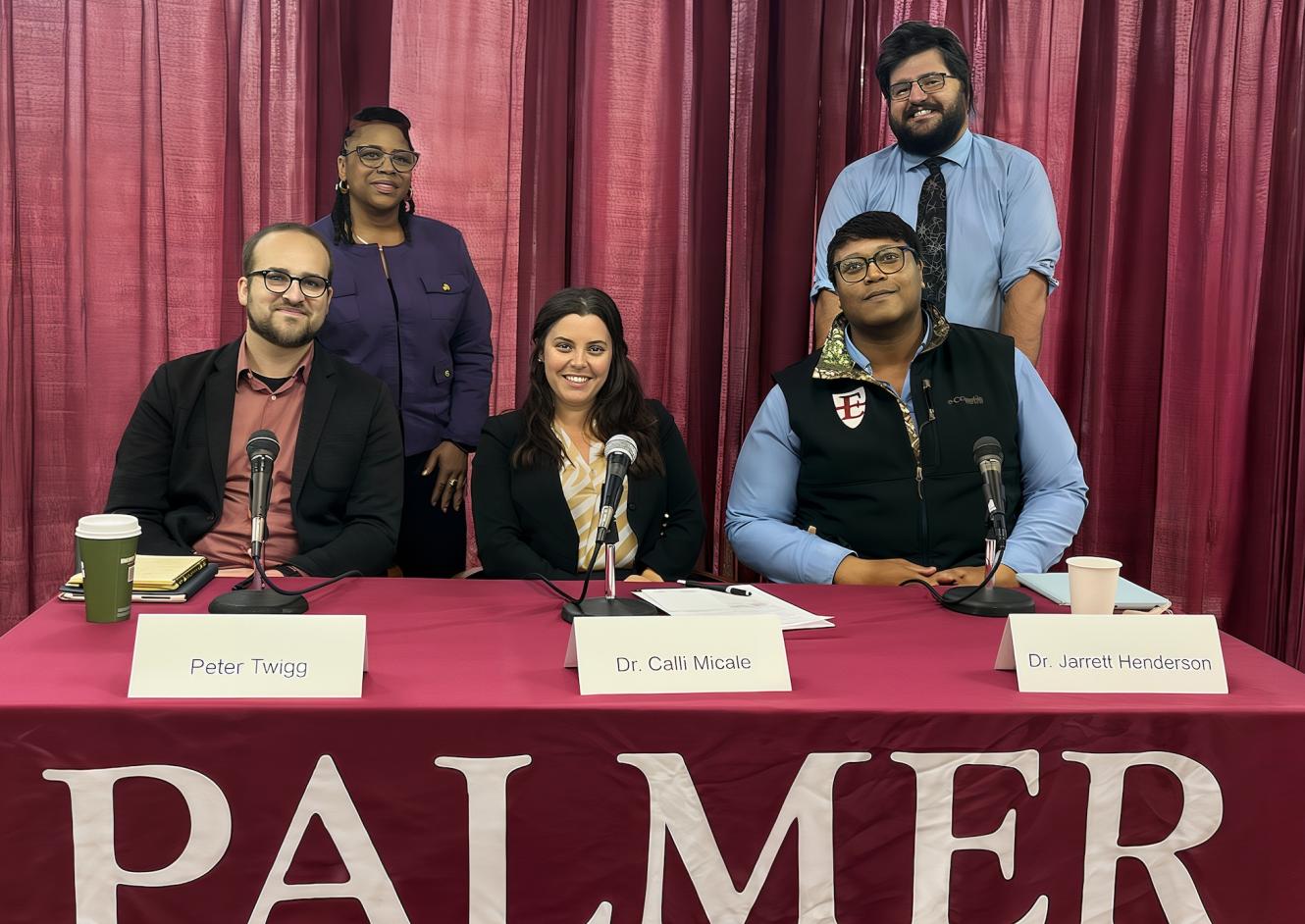
On September 28, Palmer Theological Seminary hosted the fourth annual Science and Religion Symposium. The topic, “The Spiritual Brain: Neuroscience and the Quest for God,” invited speakers and attendees to explore the intersection of the latest in neuroscience research and religious practice and behavior. Alum Rev. Zach Jackson, director of the symposium, recognized in his welcome and opening remarks that our modern knowledge of the brain and neurology has pushed against the histories of spirituality throughout the world. In the West, conditions that are understood now as mental illness were once interpreted as demonic possession or the like, and responded to in kind. In contrast, the symposium’s panelists and keynote speaker demonstrated how theology and neuroscience together inform our understanding of human persons and their search for religious experience.
Panelists Dr. Calli Mcale, Dr. Jarrett Henderson, and researcher Peter Twigg, discussed various aspects of the relationship between faith and the brain, and in particular, the ethical issues navigated through clinical research, medical treatments, and even religious practice.
Keynote speaker Dr. Andrew Newberg, the Director of Research at the Marcus Institute of Integrative Health, and a physician at Jefferson University Hospital, introduced his work in neurotheology. Dr. Newberg defined the field first with negations: “We need to be clear that neurotheology is not the neuroscientific study of theology and it is not the theological study of neuroscience… to be successful, science must be kept rigorous and religion should be kept religious.” He proceeded to describe his research which included the brain scans of participants as they underwent religious and meditative experiences in a controlled setting which revealed that there is “identification and connection” in the autonomic nervous system as well as the limbic system of the brain as individuals engaged in religious activities.His research also included surveys and testimonials. From these, he and his team were able to identify core components of intense religious experience: intensity, clarity, unity, surrender, and permanence.
The Science and Religion Symposium is another way in which Palmer is seeking to share the Whole Gospel to the Whole World Through Whole People.









